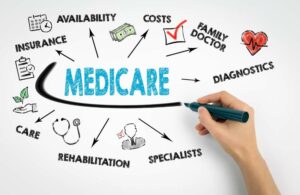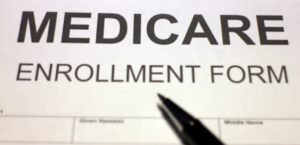Many seniors ask, “How will I pay for rehabilitation in the nursing home once I leave the hospital?”
One of the most frustrating occasions for individuals dealing with nursing home rehabilitation is believing that their insurance is going to cover the cost — only to find out that their insurance will not completely cover the total services required for an effective rehab.
Nursing Homes Need Assurance of Payment
Nursing homes want to be assured that the needed actions will be taken to confirm that they will be paid. Nursing homes are most knowledgeable about Original Medicare, Medicare Advantage Plans, Medicare Managed Care Plans, Medicare Preferred Provider Organization Plans, Medicare Private Fee-for-Service Plans, Medicare Specialty Plans, federal worker health program, military health program, and railway retirement programs. They will be happy once that payer source is verified and you are part of one of these programs.
About Medicare Part A
Medicare Part A is the main source of insurance coverage that will pay for a nursing homestay. Medicare pays 100% of day 1 through day 20 and from days 21 to approximately 100. Medicare will pay whatever is less, $114.00 each day co-pay as long as the homeowner is making progress towards their rehabilitation objectives.
Medicare is managed through an HMO (Health Management Organization) it typically pays 100% of the rehab stay if:
The HMO identifies the length of stay by the assessments offered to them by the nursing home rehabilitation personnel and the level of independence required where the patient will reside after their rehab stay. The HMO makes use of a Nurse Case Manager and a Medical Director who is a physician to make this decision.
You Can Get Supplemental Coverage
Secondary insurances with Medicare Supplemental Coverage will normally pay the $114.00 each day co-pay for days 21 through day 30 and then approximately up to 100 days relying on the tier level of the insurance plan and some tiers will often pay up to 120 days. It is crucial for you to know exactly what your insurance will cover so you don’t get caught with a large unexpected expense.
If you have the resources, you can naturally pay the Medicare $114.00 daily co-pay privately.
Many States Use Medicaid
A lot of states use a Medicaid Program for individuals who fulfill the monetary eligibility and medical requirement criteria. Please contact your State’s Department of Human Services Income Support Division (regional Medicaid office) to see if you or you or your loved one fulfills the requirements for support. Many people fear that they may lose their house or all of their earnings and properties if they can’t pay the bill but there are laws and regulations in each state that supplies Medicaid to safeguard the house or homestead and to secure the partner from hardship. There are also lawyers that concentrate on Elder Law that can assist you to protect your earnings and properties and prepare for the shift to State Medicaid Assistance when you or your loved ones’ resources end up not be enough.
More Info on Nursing Homes
Nursing homes generate income from supplying rehab services to keep financially afloat. They anticipate they will make earnings from providing patients the rehab services they need. That means that everything the patient requires in the method of treatments, treatment and medications need to be covered by your insurance before they concur to accept a client from a hospital.
The nursing home will also want to get an understanding of the patient’s cognitive status and psycho/social-well-being to see that they are suitable for their facility unless they have an agreement with the discharging hospital. You may require to discover a nursing home that specializes in these particular types of patient needs.
Know Your Benefits and Requirements
Understanding your insurance advantages and your requirements will get you the services you will need most for an effective rehab stay at a nursing home.
This article answers the question, “How will I pay for rehabilitation in the nursing home?”
Make sure you have the Medicare Supplemental Coverage needed to protect yourself from unexpected expenses.














